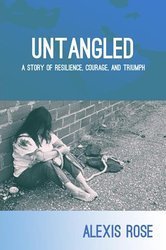Alexis Rose's Blog, page 46
October 22, 2016
What’s a house got to do with it?
Most of us remember the nuances of the houses we grew up in. We know the nooks and crannies, and the sounds the house makes when it settles and groans. We know the clicking noise of the furnace kicking in, the whistling sound of the wind blowing through the windows, and how the gate slams as someone makes their way to the door. We can trust our way in the dark during power outages or to sneak food from the refrigerator at midnight because we know where the furniture is and where the stairs begin and end.
I lived in three different houses growing up, the first two in Michigan and the third in Minnesota. Each move brought more carpeting. I lost the early warning system that wooden floors and creaky steps gave me as the carpet grew wall-to-wall.
The first nine years of my life I lived in Grant. I remember everything about that house. I could draw it in great detail; actually, I could draw all three houses in great detail. I liked this house the best, not only because the floors and stairs were wooden and creaky, but because I shared it with all my siblings at the same time. My parent’s attention was divided between the four of us children. When I was nine and we moved to the suburbs, the attention shifted away from my siblings and the spotlight fell directly on me.
Inside that first house, my bedroom was my refuge because of the windows. My sister and I had beds beneath the two windows looking out towards the front of the house. There was another window with a window-seat on the side of the room that faced the neighbor’s house. During the day, I would sit on the window-seat and read. Most nights as I lay in bed, I would turn my head towards that same window and imagine fire consuming the side of the neighbor’s house; intense bright orange flames licking high into the air. I was young but I was already finding ways to externalize the pain that was coursing through my body.
The living room was large and filled with gray furniture covered in thick plastic that you stuck to in the summer and froze on in the winter. The dining room had a fireplace along one wall, double glass doors leading to a porch, and a swinging door leading into the kitchen. That swinging door would make an earsplitting banging sound when an angry parent would smack it open when coming into or going out of the dining room. The kitchen had ugly dark green linoleum and two steps leading from it that either led you outside or if you turned right, led you down a steep set of stairs into the basement. The basement had a large room where the boys would use their wood burning sets and a corner where my father had his easel set up, a place where he would draw charcoal portraits of the family and neighbors.
Aside from the linoleum in the kitchen and the concrete of the basement, the rest of the house had hardwood floors and stairs. A few area rugs covered the center of the rooms but they did nothing to mask the sound of people walking or climbing the stairs.
The backyard seemed huge to me as a little girl. We had a few apple trees, cattails growing behind the garage, and a round swimming pool. I remember the wild raspberries that grew against the chain link fence.
I played alone in that backyard for long periods of time. My refuge was behind the garage in a corner along the neighbor’s fence. There I stayed hidden, out of sight from all the windows on the back of the house and the porch. Standing behind the garage, hearing my heart beat like a hummingbird, I petted the cattails that grew by the fence. I picked the tiny purple violets to make bouquets that I would grip as tightly if they were my last friends in the world. I didn’t care that they wilted with the heat of my hands; I just wanted to look at the delicate petals and drink in their color. It was a solitary existence but solitary was far better than any kind of attention that I received inside of that house.
The energy inside our house was super-charged. Tension crackled in the air like electricity, no matter how many of us were inside. If there wasn’t some kind of abuse going on, there was a silence that hung so thick and heavy that I would find myself looking down at the floor, or fidgeting, not knowing what to do with your hands. Opera or classical music sometimes blared from the stereo, a macabre contrast to the silence. At other times the volume of the music would alert us to what was going to happen next; the rising crescendo seemed to egg my parents on and steel us for explosive abuse.
excerpt from, Untangled, A Story of Resilience, Courage, and Triumph
Thank you for reading Untangled, A Story of Resilience, Courage, and Triumph
http://www.amazon.com/Untangled-story-resilience-courage-triumph/dp/1514213222
https://www.amazon.com/Untangled-story-resilience-courage-triumph-ebook/dp/B013XA4856


October 20, 2016
Wisdom from a Lighthouse
Ever present, overlooking and faithful
to the waters and to those who sail upon it.
I am a strong beacon atop an ever-changing cliff.
Draw from me my strength and steadiness.
Smile at the beauty that surrounds me.
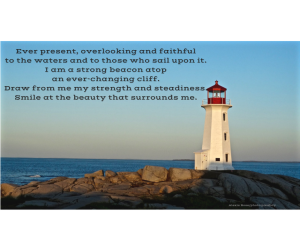
©Alexis Rose, photo: pixabay


October 19, 2016
You Don’t Look Sick! Can’t You Get Over It?
Many of us deal with an invisible illness (physical, emotional, mental), we don’t look sick!
Typically, if we are out and about and even within our own family, if we see or know someone that looks outwardly ill or has a visible disability, we hopefully (but I know not everyone) feel compassion, give them space, and help them, usually without thought or frustration. I’m not addressing caregiver fatigue in this post, I’m talking about our very human nature that if we can’t see it, it doesn’t exist.
Sometimes, out of pure surprise, when people find out I have PTSD, they say, “You don’t look sick.” I don’t take offense to it because it is a natural thought. It’s not coming from a place of dismissal, or maliciousness. But, I do take offense when the next words of “Can’t you just get over it?” are said aloud. I don’t know, there is something about those six little words that rub me wrong. I had a doctor say to me once, “You look fine, you survived, can’t you just get over it?” Strange, coming from a physicians mouth, and I’m smart enough to never go back to that person again, but, whoa, that stopped me in my tracks. I looked at her, and said, “Did you really just say that?”
Some of the invisible symptoms of my PTSD are flashbacks, hyper-vigilance, and becoming extremely overwhelmed because of triggers. I don’t freak out and run through the streets ranting, raving and screaming; but I do get out-of-sorts, can become kind of spacey, decisions become impossible and I’m sure I look shut-down and unhappy. OR, I look shut-down and have that ridiculous, I’m okay smile plastered sweetly on my face. When I’m out with friends it usually not a problem because they are aware of my “tells” but if I’m with people who don’t really know me and what to look for, it can be uncomfortable for them. I don’t ever want to feel like the elephant in the room, so I will try to talk about it.
I recently had breakfast with my good friend. We have known each other for years. We were talking about how after my recent travel experience, I realized that my family and friends have created a “new normal” for me because of my many deficits. When someone wants to hang-out, they tend to say that they will pick me up. When we go to restaurants, we tend to go to the same place so I don’t get overwhelmed with menu choices; even my boss will end a meeting if she sees my concentration waning. A 2 hour scheduled meeting may end after 15 minutes. My breakfast buddy was nodding her head in understanding because she has had two knee replacements in the past year and has had to make changes in her life because of physical challenges. We were getting ready to leave, and wincing, my friend said her body was sore from the weather changing. My tongue-in-cheek response, was, “Really, you don’t look sick!” We laughed and laughed because that’s how easy the thought and words can form when we don’t see someone’s challenges.
For many of us who have survived trauma (I expect it may be the same for people who have a chronic physical illness), we can be the master of minimizing our experiences, with our own tired, worn out mantra of, “I survived it, so what’s the big deal.” I know I have questioned ad-nauseum to myself and my therapist, why can’t I just get over it? It’s tired and worn out because why would I just get over it? And If I could, I would have chosen that a long time ago. I wouldn’t ever expect someone else to just be okay, would I? No, absolutely not. A person feels the way they feel until they have processed and passed through all the transitions of healing. And if there are multiple events it will take that much longer.
I can’t even imagine the depths of grief that still lingers inside of me. Part of the grief is sadness for the life I know I was never destined to have because my decisions were pre-determined for me for so many years. But, in spite of that, I chose to make a good life from my lied to, tattered soul. Part of the grief is sadness for the life I had for the first 20 years. For the pain, the suffering, and the squashing of my potential. But I’m proud of what I’ve accomplished in spite of what happened to me. So when others say to me, Why can’t you just get over It. You survived and have a good life with a great family and lots of great friends and support. I say, “Yep, I did survive it because I stuffed all the feelings, emotions, abuse, terror and pain down as deep as they could go.” The plan was never to resurrect any feeling or memory. But PTSD doesn’t work that way. I have complex PTSD. It’s an invisible illness, which because of the severity of my trauma will most likely leave me with symptoms (although hopefully more manageable) for years and years to come.
I know I don’t look sick, and I probably will never get over it, But I have learned to live with PTSD. Yes, thankfully, I did survive, Otherwise, I wouldn’t’ be writing this post. Just surviving doesn’t suit me any longer, living and thriving is my gold-standard now.
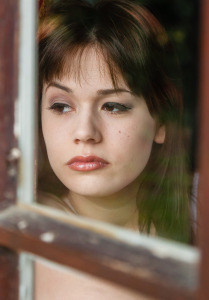
photo:pixaby
Thank you for reading Untangled, A Story of Resilience, Courage, and Triumph
http://www.amazon.com/Untangled-story-resilience-courage-triumph/dp/1514213222
https://www.amazon.com/Untangled-story-resilience-courage-triumph-ebook/dp/B013XA4856


October 17, 2016
The Flow of Self-Discovery
The past eight years has been a whirlwind of change for me. My life turned upside down because of my post-traumatic stress disorder and I had to decide, both consciously and unconsciously to heal, to change, or I would most probably die. It’s a sobering thought as I sit down to write this, but it was true. One day, very early on in therapy, my therapist and I were discussing the book The Alchemist, and he asked me to go home and think about what I wanted my personal legend to be and report it back to him in our next session. I took that homework very seriously, and I decided that my personal legend was to know the entire truth of my past, live with my eyes wide open, blinders off. To continually operate in a place of self-discovery, growth, and change. I knew how I was going to meet some of those goals but was at a loss on how I was going to maintain the intention of what I wanted my life’s purpose to look like as I continue to grow and change through time and experience.
I know the definition of my life’s purpose is who I want to be. I know I’m the author of my own story, and I get to choose how I want to be in the world. At this point in my life, it’s about choices and being proactive rather than reactive. It’s about aligning my personal values and beliefs with my actions and words while maintaining my integrity.
At the beginning of my endeavor it often looked like a question/answer session. What does it mean to live life with my eyes wide open? Is it about knowing and accepting the past without forgetting it, so I can become my version of complete? Or is it a metamorphosis of who I was, who I am and who I will be? Maybe it’s all three. As I think about how I want to spend my life and who I want to be, I am guided by a more mature and spiritual self because of the time I spent in therapy, meditation, growth and self-reflection.
I love that we live in a time where self-discovery is an accepted way of life. I spent so much time in fear and hiding, squelching any dream of a life lived, only a life survived. Now, most times, I am able to live, speak, listen and learn from a place of safety and truth. Discovering the wonder and accepting of life and what it has to offer. Not getting in the way of who I am, and instead, letting myself be who I am, without my ego reminding me of the should haves, did nots, or can nots.
Self-discovery also comes with the knowledge that the truth often hurts and is uncomfortable on many levels including physical, spiritual, emotional and mental. There were times when I would begin processing a memory and I had to fight not to ignore it, or repress it again. I learned that by repressing what I had painfully remembered was making a choice to live in fear. If I wanted to live my life’s purpose, I had to begin to learn to forget how to forget. It wasn’t an easy path or the path of least resistance, but it was the only way I could see to begin to create the life I wanted.
My PTSD was the catalyst of change for me. I had to face certain truths about myself and was forced to look at the direction my life was going. Was I going to continue to allow my perpetrators to define who I am and how I live my life? Or do I find the strength to uncover who I really am at my core and how I want to live my life moving forward? My illness gave me the choice to put my foot down and say, “enough is enough. I am not going to ride the tide of fortune and misfortune anymore. I’m going to make different choices because I have the power to do so.”
It’s been a very painful, yet purposeful journey the past eight years. I am resolute on my goal of living with my eyes wide open, blinders off. To continually operate in a place of self-discovery, growth, and change. Creating and restructuring my life’s purpose, choosing who I want to be is a lifelong, ever changing, non-linear journey but it’s empowering to know that often with each change, I grow and emerge stronger than before.
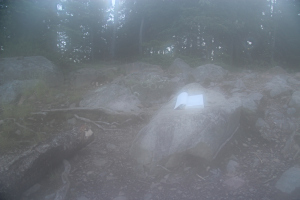
Thank you for reading my memoir, Untangled, A Story of Resilience, Courage, and Triumph
http://www.amazon.com/Untangled-story-resilience-courage-triumph/dp/1514213222
https://www.amazon.com/Untangled-story-resilience-courage-triumph-ebook/dp/B013XA4856


October 15, 2016
As she dances the steps of innocence
As she dances the steps
of beauty and innocence
even the waves and birds
stop and watch in awe.
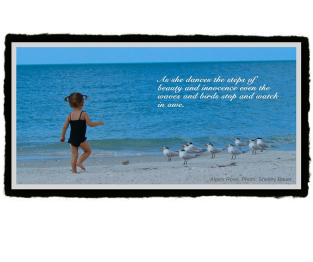
©Alexis Rose, photographer: Shelley Bauer
Thank you for reading Untangled, A Story of Resilience, Courage, and Triumph
http://www.amazon.com/Untangled-story-resilience-courage-triumph/dp/1514213222
https://www.amazon.com/Untangled-story-resilience-courage-triumph-ebook/dp/B013XA4856


October 13, 2016
Thank You 1,000 Followers on Untangled
Thank You, Thank You, Thank You to all 1,001 followers of Untangled. I appreciate and I’m grateful for your follow and for your blogs.
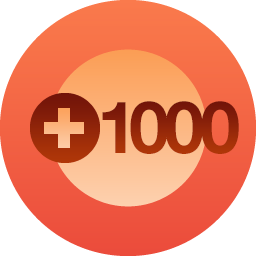


October 12, 2016
My Child with a Broken Heart
What do I say to my child with a broken heart?
I’m so sorry this happened to you.
It will okay, it doesn’t feel like it, but it will be okay.
We hold him through the tears, we sit with him and let him talk, and sob, just sitting, just feeling.
We reassure him, that he is lovable, he’s a good person, that his dreams will come true.
We text, we call, we make sure he is eating, make sure he is surrounded by good friends and we cry for his pain.
We know as parents that this will pass, that her breaking his heart now was the best outcome before he walked down the aisle in 10 weeks. We saw the divorce happening before they even said their I-do’s. We talked about stopping the wedding at the ceremony. (could we be those people?)
We knew she was absolutely the wrong person for him, but he loved her. His heart loved her.
What do I say to My child with a broken heart? I love you, we love you, it will be okay. You will be okay!
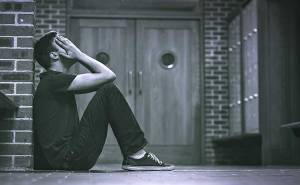
photo: borrowed from google images


October 10, 2016
Life with PTSD – World Mental Health Day
Today is World Mental Health Day. For me, every day is mental health day, but I appreciate bringing mental illness into focus for a day to the start a conversation and try to end the stigma. Mental illness comes in many forms and severity. It doesn’t discriminate against ages, soci0-ecomonic status, gender or what country you live in. It is an equal-opportunity illness. We are still afraid to talk about it, leaving many living in shame and isolation. Hopefully, awareness days like this can help. To do my part, I’m writing about what is’s like to live with complex PTSD.
I was diagnosed with complex post-traumatic stress disorder about eight years ago, after a family tragedy. My daughter was hit by a van at 30 miles an hour as she was crossing the street on her way to school. She is with us, and thriving but has suffered some life-altering effects from the accident.
The year following Aria’s accident I was busy with tending to her health, taking her to appointments, trying to work full time, and keep our house hold running as normal as possible. And at the same time, I kept having these experiences that were making me feel crazy. I had worked so hard to keep my life, my family and their world so protected that the instant Aria got hit, my controlled snow globe world came crashing down. In fact when my son and I were talking the day of the accident, he looked at me and innocently said, “things will never be the same again.” Extremely prophetic words, that at the time myself nor my family had any idea what they would come to mean.
I was becoming anxious. I started losing time, I was called into meetings at work because my performance was terribly erratic. I was physically sick all the time, and kept having these bizarre memories leaving me feeling crazy. I knew something was seriously wrong with me so I made a call to a psychologist who agreed to see me the next day.
When I started working with my first therapist, I was so anxious to tell her everything all at once so I could just feel better and get back to work. I didn’t understand that I was having flashbacks, or that I was living in a constant state of crisis. I was writing her letters from a dissociated state which made no sense to me when she would read them aloud. I would lock myself in my room for hours for fear that I was going to hurt myself and I didn’t want to be around my family.
My first therapist diagnosed me correctly but neglected to start my therapeutic process by teaching me any kind of safety or distress tolerance tools. I was out of control, thinking I was losing my mind, feeling like I had failed my family, and spiraling down a very slippery slope. She did the best she could but was way over her head and within nine months of seeing her, I knew intuitively that I had to find another therapist. I have been working with my current therapist for seven years.
When I first started seeing my therapist I was dissociated most of the time. I was in crisis, I was anxious, confused, and convinced I was going crazy. After a couple of sessions, it became apparent to him that we had to get some safety plans in place. Once that was in place we could begin the process of working on and processing my trauma.
I (sort-of) started to come to terms with the idea that my erupting memories were in fact true. I was so overwhelmed by my memories and what we would process during session that I would remember, forget, remember, forget; until I started to turn a corner and forget how to forget. That’s when I found I could really start taking the baby-steps towards health.
Not only was my therapy about processing the memories, I also had to start accepting that there were some pretty intense effects of the trauma and that influenced how I saw and reacted to the world. I knew I had some pretty deep-rooted trust issues. I also had large, thick, almost impenetrable walls holding back any feeling or emotions that I was willing to let the world see. I also began to understand that because of my trauma I had a pretty significant attachment issues, which for me, has been one of the hardest things to learn and accept. For some reason the attachment issue fed into my very low self-esteem and it’s something I still work on.
I also had to face down how my trauma effected my relationships with my family, friends, parenting style and career. In the midst of dealing and coping with the trauma, there were a lot of AHA moments, when I saw how my behavior and ways of coping with life, had been a direct result of my trauma and not because I was a bad person.
Eight years later and one of the biggest reasons I write is because my PTSD symptoms still have a pretty good choke-hold on me. As with many mental illnesses PTSD can be invisible on the outside. I had always been the master of wearing many masks, and deflecting any conversation away from me, all with a supportive smile for everyone else. But when I couldn’t hide my illness any longer my friends began to ask me, what does it feel like inside. I couldn’t really explain it, so I wrote a poem and shared it with my friends and family. I found that by writing I found a way to share with others and begin to understand what PTSD means for me, and find a way to cope with my fear that I would be plagued by the symptoms forever.
My symptoms include (not limited too) flashbacks, concentration issues, becoming overwhelmed and my brain shutting down, not being able to make choices, anxiety/depression, and sensitive to the triggers that start the whole shebang of symptoms. We use the term, triggers, triggers everywhere. The wind can blow a certain way, or fireworks, or a car back-firing, even the moon can bring on flashbacks.
Unfortunately, my symptoms have left me with the inability to work. I went from having a wonderful career with the fringe benefits that provided me with some comfort for the future and the ability to provide for my family. I’m only able to work about 2 hours a day…on a good day.
It seems as if my symptoms (depending on the time of year) can start a chain reaction, so I needed to learn to work within my deficits. This isn’t easy or comfortable for me and because I’m still pretty new at learning how to work within my symptoms, I can find myself becoming frustrated and angry at my PTSD! Actually most days, if I’m going to be honest I am VERY angry at my PTSD. But then I settle down and think about what I want for my life and try to rest and reset.
The inability to concentrate can be over-whelming for me. I know what I want to do, what I want my brain to do but I simply am unable to do it. Making choice at the grocery store, or a restaurant can be so uncomfortable that I will just simply lose my interest in eating and shut down. Sometimes as night approaches it feels overwhelming because I know that its highly likely that sometime during the night I will have nightmares. Even practicing good sleep hygiene listening to podcasts, all the tricks can’t stop the nightmares sometimes and it gets overwhelming. And sometimes I’m overwhelmed because I’m a survivor of trauma and have PTSD and that’s just the way it is, even though I wish it was different.
Writing gave me the courage I needed to address the pain I was feeling. I would write even when I thought I had nothing to write about. At first, I strictly used it for bilateral stimulation. I would write and send what I wrote off to my therapist. I started to find that I was able to write down what I couldn’t say aloud. It provided distance from having to use my voice at first, but then I found it actually gave me a voice.
What I hope to convey as I move forward: Try to remember to notice those perfect moments. Celebrate each step on the path towards health, know that it is a long and never linear process, and that it really is just one foot in front of the other, you need to do a lot of resting, a lot of just sitting and metabolizing. Healing can feel like be a lonely process, but through good support, including a solid blogging community and continued voices speaking out against the stigma, we realize that we are not alone.
I’ve been hurt, I’ve been threatened, I’ve been abandoned, but I wasn’t going to let the effects of what happened to me keep me from trying to have the life I wanted. I never lose sight of my goals. They are to live with my past, live in the truth, and recognize and relish in the feelings of internal contentment. Somedays those goals seem as far away as the furthest star, and other days I can see them just through the clutter, almost there.
I still need therapy to manage my symptoms, and I may need a lot of assistance for the day-to day grind, but I’m motivated to keep moving forward, spurred on by the hope for a better life. A life where I am living, not just surviving.
When I speak to groups, I’m often asked, “what can I do to be more aware?” My answer is, be aware of others, take notice of those around you, listen to your friends, neighbors, read about PTSD, or whatever illness interests or affects someone you know or love. Try not to perpetuate the fear and shame the person experiences when diagnosed with a mental illness. Show the same kindness and support you would to someone when they break their leg, have a cancer diagnosis or lost a loved one. Stop judging, stop fearing and show concern, understanding and kindness.
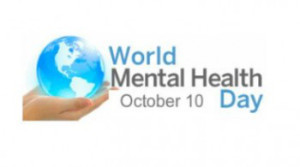
Thank you for reading my memoir, Untangled, A Story of Resilience, Courage, and Triumph
http://www.amazon.com/Untangled-story-resilience-courage-triumph/dp/1514213222
https://www.amazon.com/Untangled-story-resilience-courage-triumph-ebook/dp/B013XA4856


October 9, 2016
I’m Not Flying Solo…
It may look as if I’m flying solo
but I’m remembering to lean
into the wind, find comfort
in the safety of the clouds
and soar into the shadow light of the sky.
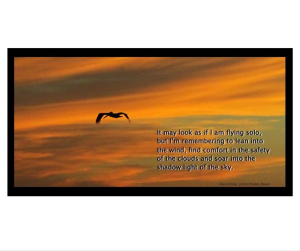
©Alexis Rose, photo: Shelley Bauer
Thank you for reading my memoir, Untangled, A Story of Resilience, Courage, and Triumph
http://www.amazon.com/Untangled-story-resilience-courage-triumph/dp/1514213222
https://www.amazon.com/Untangled-story-resilience-courage-triumph-ebook/dp/B013XA4856


October 7, 2016
Foreword
Thank You Jason, for doing a wonderful job of helping to promote Untangled. Be sure and check out https://aopinionatedman.com. His blog is interesting, opinionated, sometimes tender, often funny and never dull.
On a cool Colorado morning in June, I guided Alexis and her daughter up the switchbacks leading to the summit of a 14,000 foot peak. With the tree line below us, I watched the two extraordinary women in front of me scramble up the rocks and obstacles that stood in their way. The air was thin, especially for us flatlanders, requiring frequent rests and breaks. Near the apex, we sat and reflected upon the remarkable journey that Alexis had been on. On that day, she showed the same courage and tenacity that she had shown through our years of therapy together. She made it evident that nothing would deter her from summiting. It was the literal realization of the metaphorical journey that we had been on.
Climbing a mountain. This was the early metaphor that we adopted to describe the healing process. My role was that of Sherpa; I was…
View original post 252 more words



